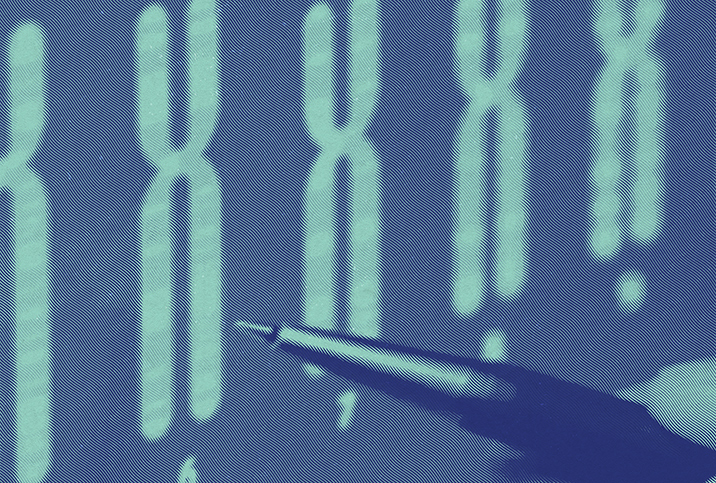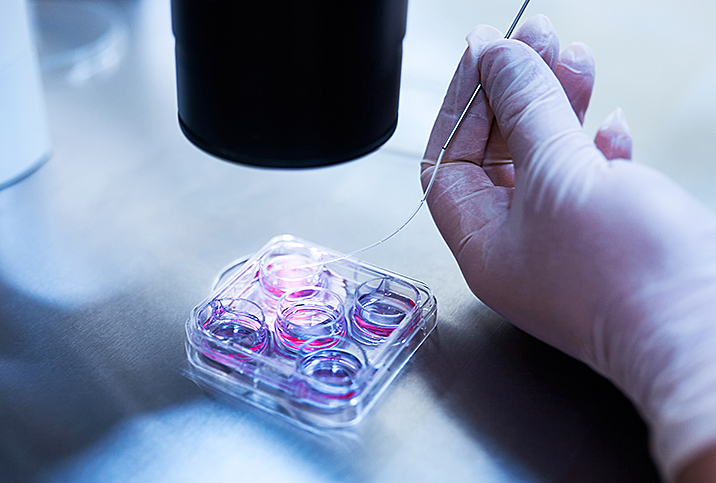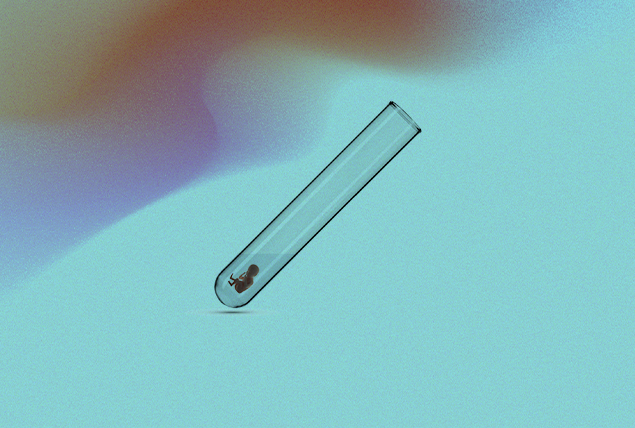If You Could Preselect the Gender of Your Next Baby, Would You?

The 1997 sci-fi film "Gattaca" depicts a world where embryonic genetic selection has created a new social order. Wealthy parents select the genes they want their children to have and they are automatically elevated to the ruling class. Anyone born "naturally" is placed into a lower class.
But that's just science fiction, right?
The idea of an elite class of humans predestined for success because of their preselected genes may have seemed unbelievable less than three decades ago. Today, it is becoming a real possibility.
A study published in March 2023 by researchers at Weill Cornell Medicine in New York determined the safety of a sperm selection technique during in vitro fertilization (IVF) to allow couples to select the sex of their offspring with 80 percent accuracy.
"I am convinced that the science is sound and that, instead of the usual 50:50 'coin toss,' a couple can get a baby with the desired sex a little under 80 percent of the time," University of Kent genetics professor Darren Griffin told Sky News in reference to the study.
The ethics of sperm selection
Ethically, this method and other types of sperm separation have the potential to be problematic.
"They propose sperm selection as an 'ethical' alternative to embryo selection," said Channa Jayasena, Ph.D., head of andrology at Imperial College London. "I find this incredible since sperm selection is just another way of selecting embryos to manipulate the sex of offspring, with detrimental societal implications."
Other researchers are raising their concerns about the ethical minefield of sperm and embryo selection. While embryo selection is banned in the United Kingdom, some researchers are worried this new method of sperm selection could offer a legal "loophole." Last month, a group of researchers even called for stricter regulations to avoid what they believe could become a slippery slope.
Sex selection, both with an embryo and through this new sperm selection technique, is legal in the United States.
As science continues to advance and the "Gattaca"-esque preselection of a baby's sex becomes easier than ever, many believe it may be time to re-evaluate both the legalities and the ethics surrounding the issues.
What's the current state of the ART?
The Weill Cornell Medicine study is but one example of an effective method of assisted reproductive technology (ART).
"Assisted reproductive technology refers to any treatment in which eggs are retrieved from an individual's body, combined with sperm and replaced in a person's uterus for implantation and development," said Sue Ellen Carpenter, M.D., an OB-GYN and fertility specialist in Atlanta.
Sex selection is one branch of ART.
Two primary scientific methods allow couples to find out information about their potential future child, sperm sorting and PGT-A (preimplantation genetic screening), according to Abhishek Shankar, the India-based founder of Baby Bridge, an AI-driven fertility solution for clinics in the U.S. Sperm sorting involves separating sperm based on whether they carry the female X chromosome.
"Sperm sorting techniques include methods such as centrifugation, flow cytometry and microfluidic sorting," he said. "These techniques can be used to separate the sperm that carry the X chromosome from those that carry the Y chromosome."
With PGT-A, cells are removed from the embryo to be analyzed for abnormalities.
"In addition to detecting chromosomal abnormalities, PGT-A can also identify the sex of the embryo by analyzing the presence of sex chromosomes," Shankar added. "This information can be used to select embryos of a particular sex for transfer into the uterus during an ART procedure."
The Weill Cornell Medicine study was led by Gianpiero Palermo, M.D., a reproductive endocrinologist at the university. Carpenter noted Palermo's technique for sorting sperm applies to sperm being used for IVF and pre-implantation genetic testing for aneuploidy.
"Assume it has been decided that a couple needs in vitro fertilization to conceive and PGT-A is used to avoid the transfer of embryos with a numeric chromosomal abnormality," she said. "The chromosomal gender information will be a part of the PGT-A report. Some patients choose to know the gender information, others do not. All patients who undertake this technique are seeking a healthy pregnancy by transferring an embryo with a normal 46-chromosome complement."
ART could be an ethical minefield
"Every step in ART requires careful ethical thought, and the physician and the embryologist are responsible for using the available technology wisely," Carpenter said. "In my opinion, IVF with PGT-A should be used only for the purpose of having a healthy pregnancy. I believe it should not be used for gender selection alone.
"However, if a patient prefers a child of a particular gender, and healthy embryos of the preferred gender are available, I see no reason for the patient not to have the information and be allowed to act on it."
For Carpenter, situations are arising where an ethical decision has to be made.
"When a patient calls my office to say she/he is fertile and seeking care solely for 'family balancing,' I decline treatment," she explained. "To me, there is a difference between the desire for a healthy child, with a preference for a particular gender, and the desire for a healthy child only of the desired gender. The latter would lead to the disposal of healthy embryos purely on the basis of gender, which, to me, is ethically inappropriate."
Shankar listed some other ethical concerns related to the concept of sex selection that require future discussion.
Technology might increase gender bias and discrimination
If we live in a world where parents can choose the sex of their children, we risk creating a society in which gender bias thrives.
"Sex selection may reinforce discrimination against certain groups based on sex or gender," Shankar noted. "For example, in some cultures, boys are valued more than girls, which can result in the selective abortion of female fetuses. This can have long-term consequences for gender equality and social justice."
He added this type of technology might also be misused by some.
"If sex selection becomes widely available, there is a risk that it could be used for nonmedical reasons, such as choosing the sex of a child for social or cultural reasons," he said. "This could result in a skewed sex ratio in certain populations, as has happened in some countries where son preference is prevalent."
The commodification of human life
The normalization of sex selection could lead to a new class system as was described in the movie "Gattaca."
"The use of technology to determine or select the sex of a child may be seen as a medicalization of reproduction, which could lead to the commodification of human life," Shankar said. "This could have implications for the way we view human beings and the value we place on different characteristics."
The argument for autonomy
Not all arguments are against the use of this technology. Shankar noted there is an ethical argument to be made for the technology on the grounds of parental autonomy.
"Patients who choose to use technology to determine or select the sex of a child should have the autonomy to make their own decisions," he said. "However, it is important to ensure that these decisions are made with informed consent, meaning that patients are fully aware of the risks and benefits of the procedure."
What will a future where ART is commonplace look like?
In the U.S., sex-selection ART is legal. So what might the future look like as science continues to advance and become more available?
As Carpenter and Shankar noted, there are ethical concerns about how this type of technology could create an increasingly unfair society—especially if we are also eventually able to choose the IQ, health prospects and even physical appearance of our future children.
"The availability and affordability of technology for sex determination and sex selection may also have implications for social justice, particularly in developing countries or marginalized communities," Shankar said. "It is important to consider how these technologies may impact different populations and to ensure that they are used in an equitable and responsible manner."
It is fascinating to see scientific developments taking place, the broader ethical implications of that technology need to remain at the fore.
"The use of technology for sex determination and sex selection may have broader implications for society as a whole, such as changes in demographics or cultural norms," Shankar added. "It is important to consider these potential impacts when making decisions about the use of these technologies."


















